Keeping chicken in winter needs attention
In the winter, farmers in Ghana usually choose to use poultry farming equipment for centralized management. What should be paid attention to in the process of centralized management?
Strengthen the environmental management of the flock.
The environment has a great impact on the occurrence of diseases. In winter, the temperature is lowered. Most of the chicken farms need to adopt thermal insulation measures. Especially in the northern areas, the chicken houses should be sealed for heat preservation, and the air freshness in the chicken houses is affected. In addition, the concentration of ammonia will increase greatly. Coupled with high-density breeding, it is easy to cause outbreaks of some diseases and cause diseases in the group. Therefore, it is necessary to strengthen the management of the environment.
Do a good job of isolation.
The site selection of the chicken farm should be far away from the residential area, and the environment should be environmentally isolated. In addition, in the management, the vehicles and personnel entering and leaving the venue should be strictly disinfected, and unnecessary circulation should be eliminated as much as possible. External contact, avoid cross-infection, and achieve true isolation.
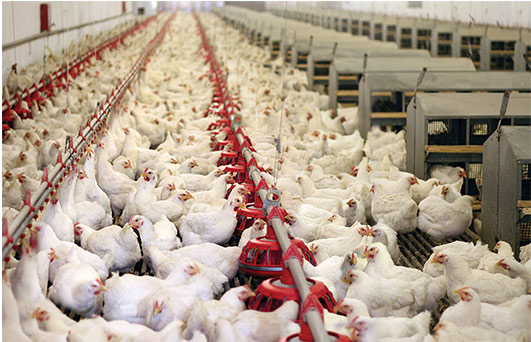
Do a good job in sanitation and disinfection.
In the management of chicken farms, it is very important to do a good job in sanitation and disinfection. In strengthening health management, it is necessary to formulate a strict health management system. Health needs to be meticulous and comprehensive, and there is no leakage. Every day, the factory and the chicken house will be cleaned to ensure the sanitation and cleanness of the environment. It is necessary to establish a strict disinfection system and ensure that the disinfection work in the plant area can be fully covered in accordance with the scientific disinfection process. For sick and dead chickens, they should be treated according to the harmless treatment process to eliminate the source of infection.
When disinfecting the chicken house, it is best to disinfect the chicken, but in the winter, it must be carried out at noon as much as possible. The temperature at noon is high, which can avoid the temperature difference caused by disinfection and the temperature is the least.
Ensure the stability of the environment.
In winter, the chicken house should be sealed for heat preservation. Although it is good for heat preservation, it is not conducive to the elimination of harmful gases, resulting in an increase in ammonia volume and an increase in humidity. Therefore, it is necessary to properly carry out heat preservation. Ventilation to ensure fresh air in the house. It can open skylights, use axial flow fans, longitudinal ventilation, etc. It can also achieve the purpose of reducing nitrogen and humidity by reducing the drinking water of the chickens, reducing the water sprinkling, increasing the temperature inside the house, and adding pharmaceutical additives such as ammonia and deodorization.
In the process of removing ammonia and dehumidification, it is necessary to do the heat preservation and ventilation, and the ventilation will inevitably lead to the decrease of the temperature inside the house. Therefore, the ventilation should be used as much as possible, and the interval ventilation mode is adopted. When the temperature is lowered to a certain limit. Stop breathing and avoid excessive stress caused by excessive stress.
Analysis of the causes of chicken cold
Cooling is one of the main causes of chicken sickness. There are many cold spots. It is not only the temperature control level or the ventilation of the chickens, but the factors that can cause the chickens to be cold are as follows.
1. During the brooding, the water line is too low, the water pressure is too large, the chicks are drilled into the water cup, the nipple leaks, causing the chicken feathers to be wet; the spray equipment is damaged, the nozzle dripping seriously or the spraying time is long, causing the chicken feathers to be wet.
2. Improper humidification method, only pay attention to humidification, does not consider the temperature of the flock, when the flock performance temperature is low, humidification with a humidifying tube will make the flock cold.
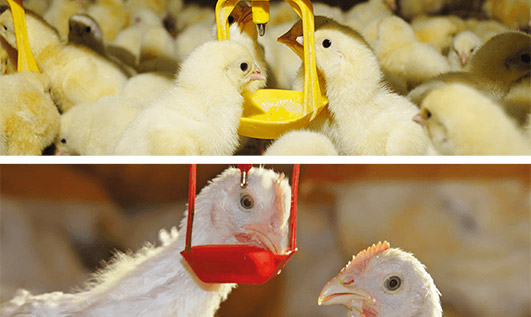
3. The chicken house is not tightly sealed, causing side windows, sewage outlets, chicken outlets, water curtains, exhaust fan outlets, etc., resulting in thief winds, so that the chickens in this area are cold due to low temperatures.
4. After the wind enters the chicken poultry farming equipment from the air inlet, there are obstacles blocking during the pre-warming process, causing the breeze to rebound, and the chickens are swollen.
5. The temperature control is unreasonable; the cooling rate is faster, especially in the cold season, which makes the chicken's cold is more common.
6. Only rely on the temperature indicated by the thermometer, but the chicken's physiological behavior is not taken seriously, resulting in the chickens being cold.
Spring management of the chicken house environment
The use of chicken cages to raise chickens is a popular chicken raising method in the chicken industry. The chicken cages are raised in a multi-layer cage. The breeding density is large and the number is large. It is very popular among farmers, using chicken cages to raise chickens, and which are Need to pay attention to the chickens to pay attention to the matter, only pay attention to all aspects of feeding points, scientific and reasonable breeding can be able to raise the higher yield of the chickens, the following authors to tell the majority of farmers to use the chicken battery cages in spring Chicken's precautions.
1. Humidity
Relative humidity is preferably 60% to 70%. Higher humidity is beneficial to the survival and reproduction of microorganisms. If accompanied by low temperature, it will increase the risk of low temperature. When the humidity is low, the chicken house is dry, which is easy to induce respiratory diseases of the chicken. Especially when the chicken is in a dry environment for a long time, it may cause dehydration and weakness. Therefore, we must pay attention to the adjustment of the humidity of the house. In winter, the litter is relatively dry and should be sprinkled or spray disinfected frequently.
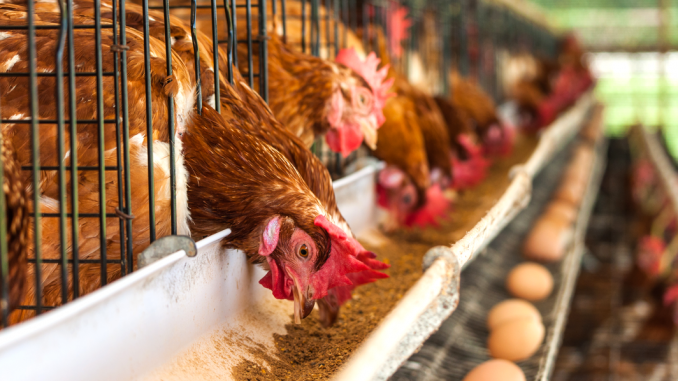
2. Temperature
The suitable temperature for laying hens is about 20 °C, and the minimum should not be lower than 13 °C. If the temperature inside the house is not up to the required temperature and the temperature difference is too large, it is necessary to manually increase the temperature and keep it as relatively stable as possible.
3. Harmful gas
The most harmful gas to chickens is ammonia, which stimulates the sensory organs of chickens, induces respiratory diseases, and reduces feed efficiency. When you enter the house, you can smell the smell of ammonia, indicating that the ammonia in the house has already exceeded the standard. Chicken houses that are warmed by coal stoves should be protected against carbon monoxide poisoning. When the harmful gas is excessive, take appropriate measures immediately, such as increasing the ventilation volume and changing the litter, so as to reduce and eliminate the harm to chickens.
4. Ventilation
When the air in the morning is relatively dirty, if it is necessary to increase the ventilation, it should be gradually increased. It is best to carry out at a high temperature at noon. It is better to use a shorter ventilation time and multiple passes. If the chicken is found to be disease-free, snoring and breathing, the dust in the house is full and the odor is very strong, indicating that the air in the house is extremely dirty, and ventilation should be strengthened immediately. However, to prevent thieves, it is common to install elbow-type ventilation on the leeward wall to prevent the chickens from being directly exposed to the wind.
Temperature control management of spring broiler breeding
The temperature difference between day and night in spring is large. It is necessary to pay attention to controlling the constant temperature. If the temperature is too high or too low, the weight of the broiler will be affected. The weight of the chicks should be 4 times of 7 days after entering the house. If this standard is not met, it will affect the growth and development of broilers. If the temperature exceeds 38 ° C for more than 3 hours in the first week of brooding, it will affect the growth and development of the chicks.
(1) Temperature control before chicks enter the poultry farming cages.
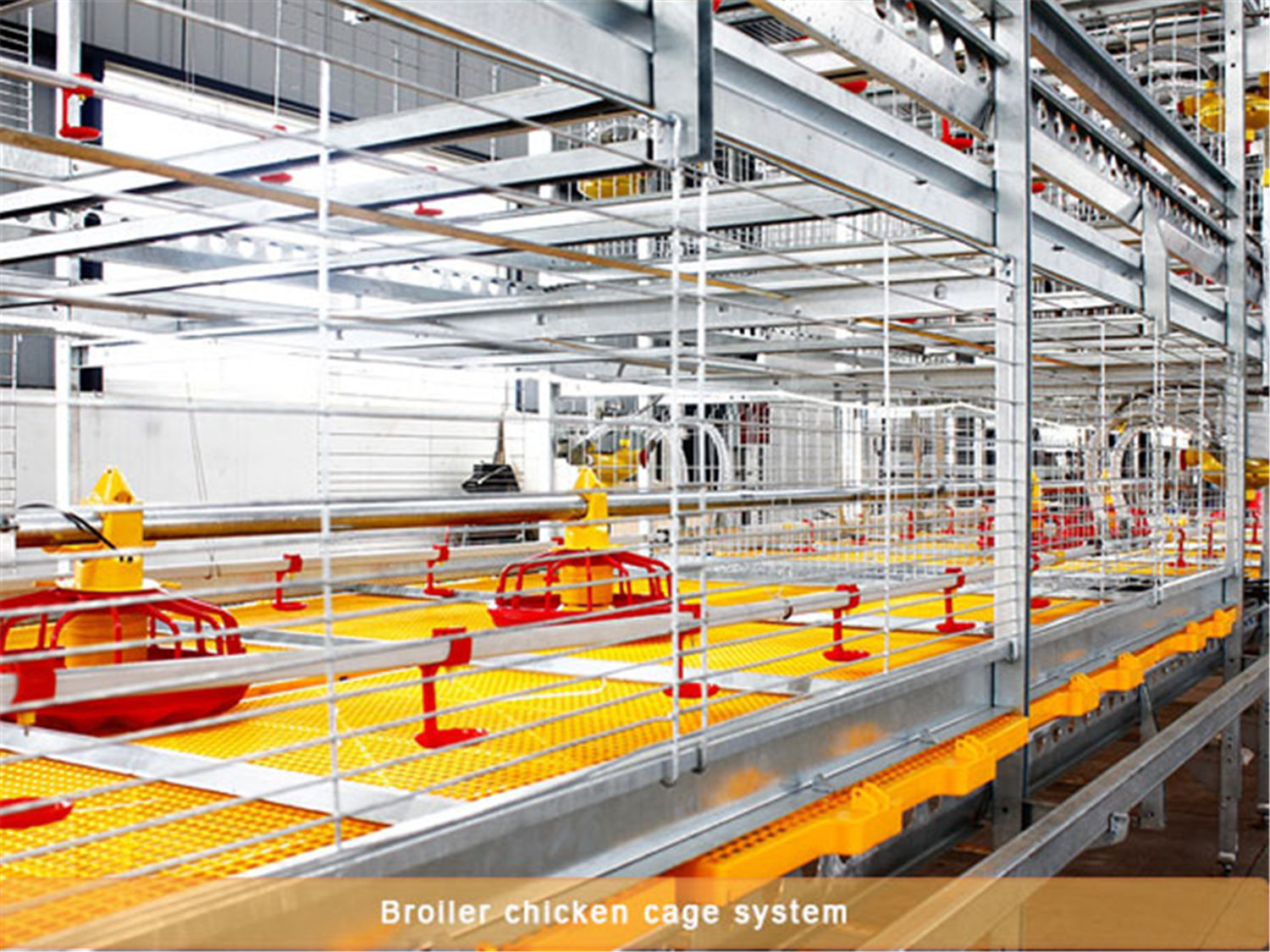
Be sure to fully pre-warm the brooding room, preferably more than 12 hours in advance, to keep the temperature of the air, floor and wall of the house consistent. In production practice, the temperature of brooding is not up to standard. Although the temperature in the air has reached the required level, the ground temperature is still relatively low. It is easy to appear cold on the second day after entering the chick. Although it can be adjusted, the late chicks tend to The intestinal tract is not good.
(2) Pay attention to temperature control during immunization.
Every immunization should control the temperature, preferably 2 ° C ~ 3 ° C higher than usual, due to the weak immunity of the body during immunization, it is easy to infect mycoplasma or E. coli disease, so during this period the house should be suitable temperature.
Chicken house cooling method
Regarding the method of cooling the chicken house, when raising chickens, remember that if the temperature inside the house is too high, it will seriously affect the healthy growth of the chickens. Generally, the temperature inside the chicken houses will be higher, which is timely in the chicken house. There are many ways to cool down the work to cool down. What are the common ones?
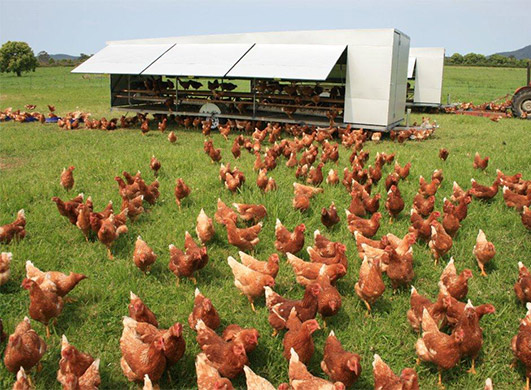
1, you can choose to use water spray to cool the house, generally can reduce the temperature of 5-6 ° C, but this is easy to cause the humidity of the house is too high, so you need to pay attention to humidity control, humidity instability will also affect the chicken Growing.
2. For chicken houses that have not yet been built, you can choose to install a layer of insulation on the roof of the built chicken house to prevent it from being sun-dried. It also has the effect of heat insulation.
3, you can choose wet curtain for mechanical cooling but the chicken house is closed to have a good cooling effect, use the chicken equipment fan wet curtain to cool down can control the cooling time and wind speed, etc., high controllability, is The main method of cooling.
4, you can choose to plant some broad-leaved trees around the chicken house poultry farming equipment, you can cover the sun, have the effect of cooling.
What item does spring raise a chicken to need to notice?
In early spring, however, the climate is still cold and changeable, with the temperature fluctuating from high to low. In addition, the cold air and cold current bring a lot of diseases to chickens.And low rate of egg production, slow growth has become a common phenomenon in chicken.So what do you need to pay attention to in spring chicken farming?Today we summarized the following points, hope to help more chicken friends. the following authors to tell the majority of farmers to use the chicken cage system in spring Chicken's precautions.
1. Disinfection
Spring is the season that everything revives, the disease is no exception also, so spring disinfection is particularly important.
In early spring, when the temperature is low, the frequency of bacterial activity decreases, but the climate is still cold, and the resistance of chickens is generally weakened.So this time if neglect disinfection, extremely easy to cause disease outbreak epidemic, cause heavy loss.
Must take disinfection seriously so the job, cannot careless.

2. To keep warm
In early spring, the temperature difference between morning and evening is large, and the weather changes quickly, which brings a lot of inconvenience to raising chickens. In particular, the influence of low temperature on chickens is very obvious, which makes them easy to catch cold.
Therefore, under normal circumstances, can be appropriate to increase the feeding density, close the doors and Windows, hanging straw curtain, drinking warm water and furnace heating and other ways to keep warm, with coal furnace warming to pay close attention to gas poisoning.
3. The ventilation
Ventilated it is the important item in raising a chicken!Keep the chicken coop fresh while keeping it warm.Proper handling of the relationship between heat preservation and ventilation is very important for raising chickens in spring.
Due to the low temperature and high feeding density in spring, the emphasis on the insulation of chicken coop often ignores the ventilation and ventilation, which easily leads to dirty air in the coop and a large number of bacteria breeding.Chicken inhaled carbon dioxide and other harmful gases for a long time, easy to cause e. coli disease, chronic respiratory disease and other diseases.So, ventilated cannot ignore.
4. Feed nutrition
Spring climate is changeful, the resistance of chicken is relatively weak, raise the nutrient level of feed accordingly crucial.
The protein content of chicken feed should be increased by 3%-5%, and the energy in the feed should be increased properly.At the same time feed should pay attention to supplement a variety of vitamins and trace elements, enhance the chicken body resistance.
